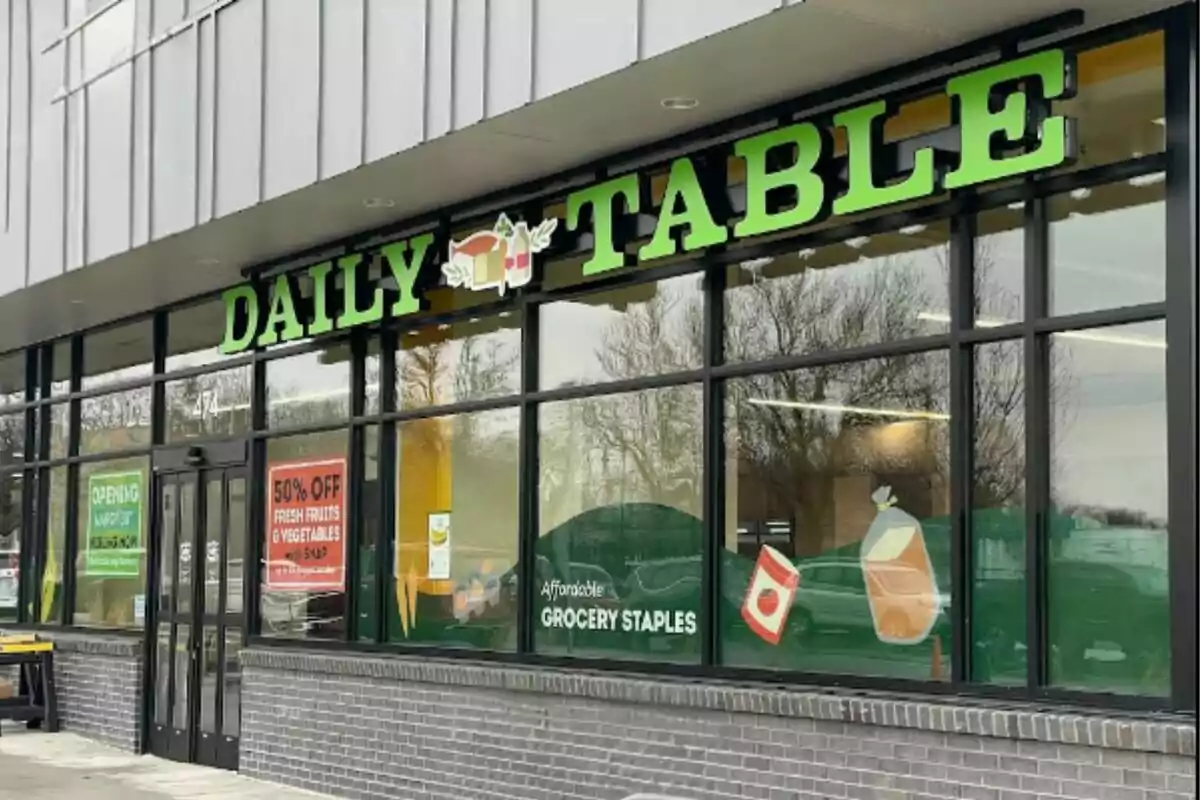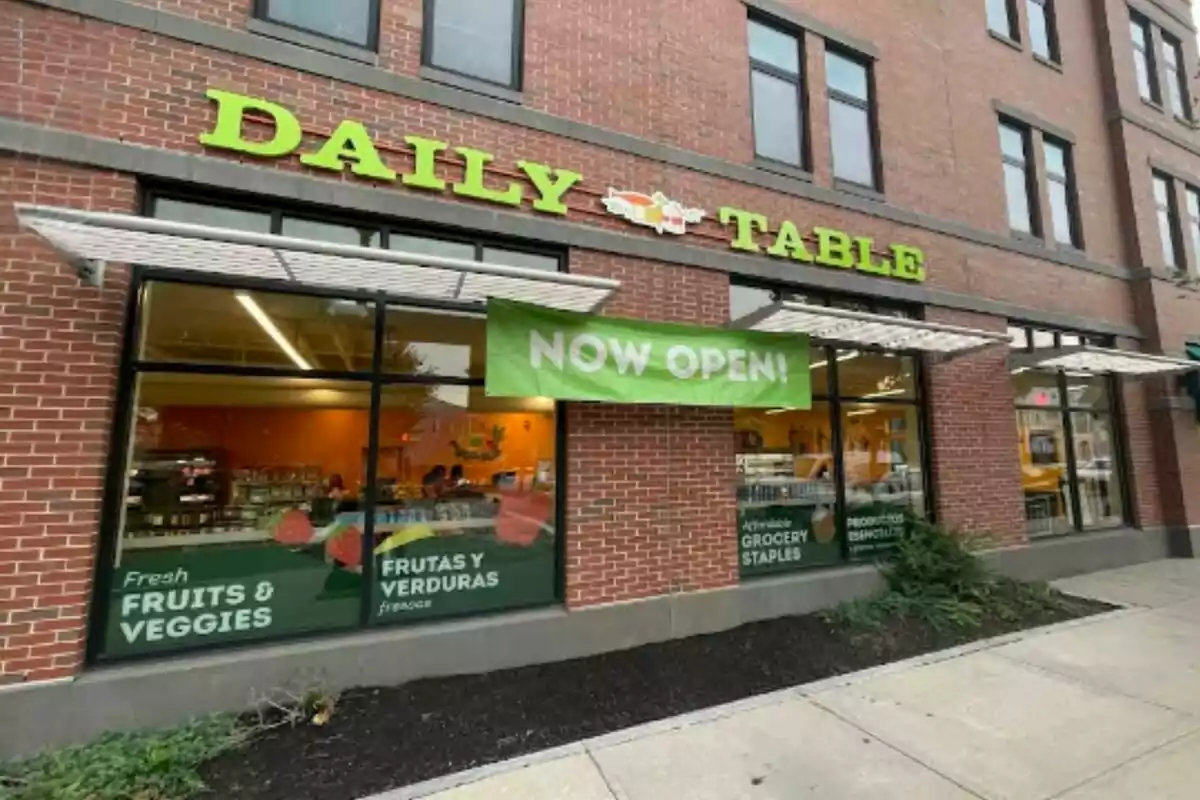The supermarket sector in the United States continues to face significant challenges following the Covid-19 pandemic. Many businesses in the area struggle to adapt to inflation, rising food costs, and the increasing expense of financing. These factors are affecting the viability of several chains, which are forced to close stores or restructure their operations.
One of the notable cases is the closure of Daily Table, a nonprofit supermarket chain located in the Boston area. This company announced the closure of its last four stores after failing to secure the necessary funds to continue operating. Daily Table was founded with a clear social mission: to offer nutritious and affordable food for vulnerable communities, but economic difficulties outweighed their efforts.

The closure of Daily Table and its causes
Daily Table was born in 2012 thanks to Doug Rauch, former president of Trader Joe's, with the idea of combating hunger and obesity by offering quality products at low prices. For more than ten years, the chain managed to positively impact the communities of Boston, Cambridge, Roxbury, Mattapan, and Salem, selling accessible food and generating savings for its multiple customers. However, the pandemic and inflation deteriorated its finances, making it difficult to continue its operations.
Daily Table's model was based on collaboration with producers and suppliers to keep quality without raising prices. In addition to generating decent employment for the residents of the neighborhoods where the firm operated, according to The Street.
Despite having served more than three million people and having saved the community 16 million euros, the changing economic environment made it unfeasible to keep its stores. In January, they closed the store in Mattapan, and on May 12, 2025, they closed their remaining four locations.

Sector context and other relevant closures
Daily Table is not the only chain suffering the impact of rising costs and the difficult post-pandemic recovery; other companies have made similar decisions to survive. For example, Winn-Dixie, popular in the southern United States, closed four unprofitable stores in Alabama during the spring. Also, the small Texan chain Thom's Market closed its three locations in Austin without giving clear explanations, and Amazon Fresh eliminated two of its physical stores after evaluating their performance.
The disappearance of Daily Table reflects the challenges faced by companies with social proposals in a complex economic context. The sustainability of these projects increasingly depends on their ability to innovate and adjust their business models. In a changing market, flexibility and quick response to new conditions will determine who manages to stay relevant.

